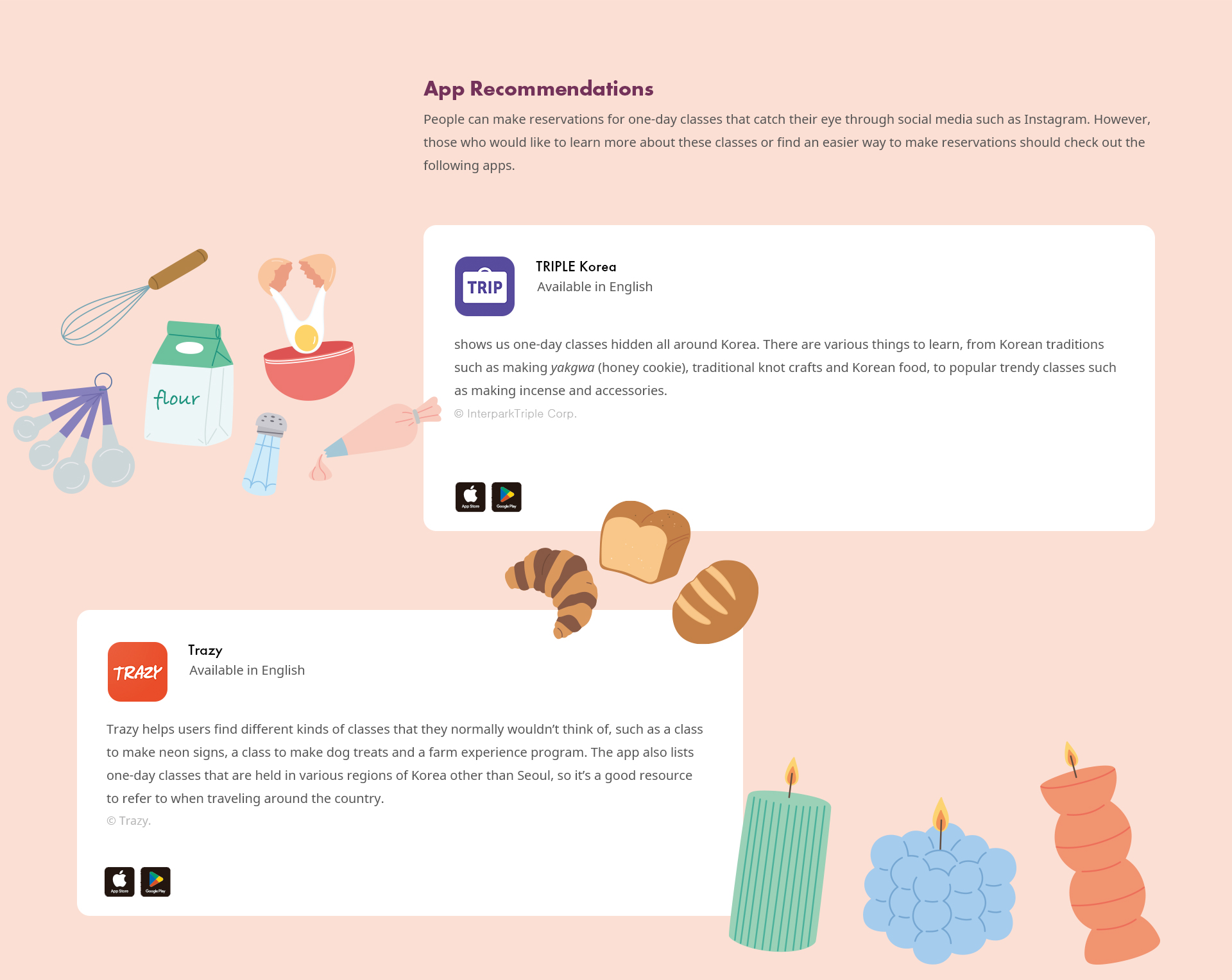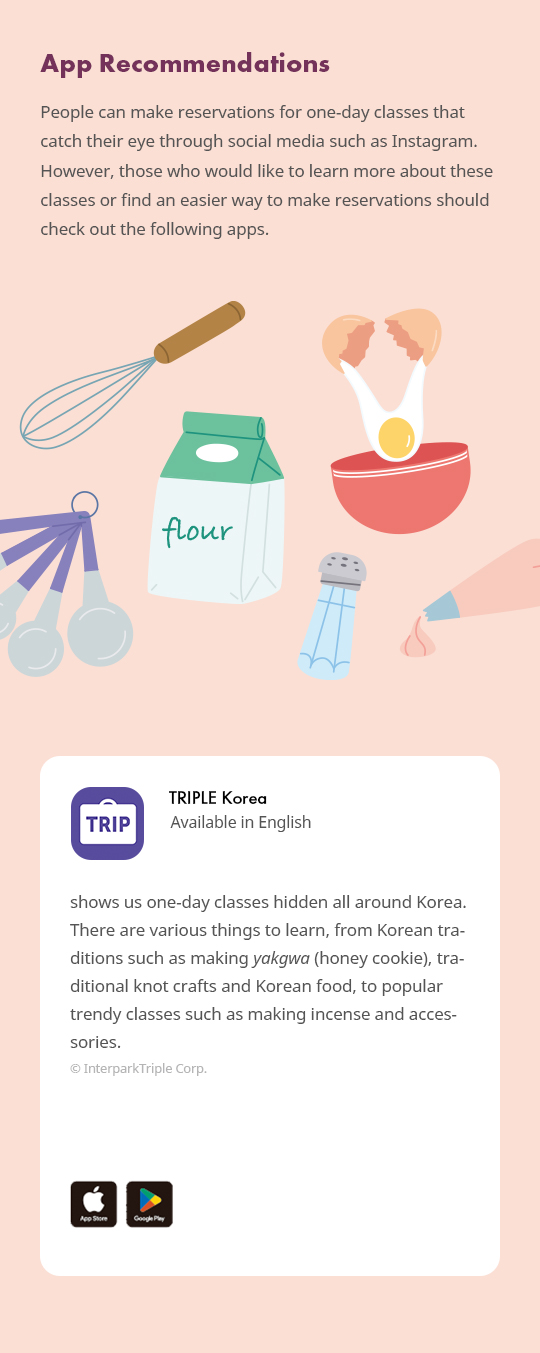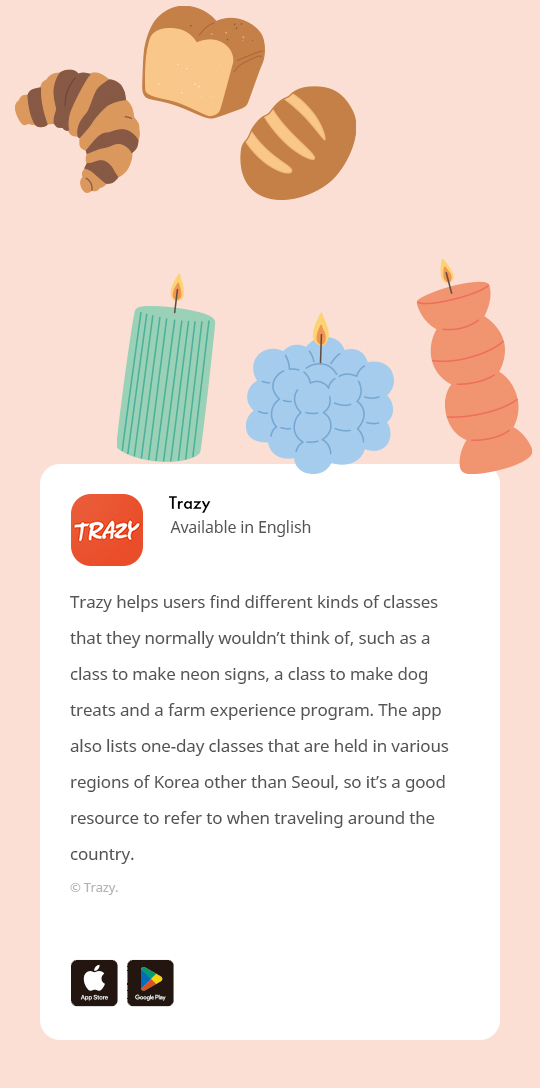What if there was a program that allowed you to deeply experience things you’ve always been curious about in a short period of time? Short-term programs can help you experience something new without worrying about wasting time if you don’t like it. If you do enjoy it, you can go on and pursue the subject further. Nothing could be easier! This is known as Korea’s “one-day class” culture and has become a trendy way to enjoy short-term learning experiences.
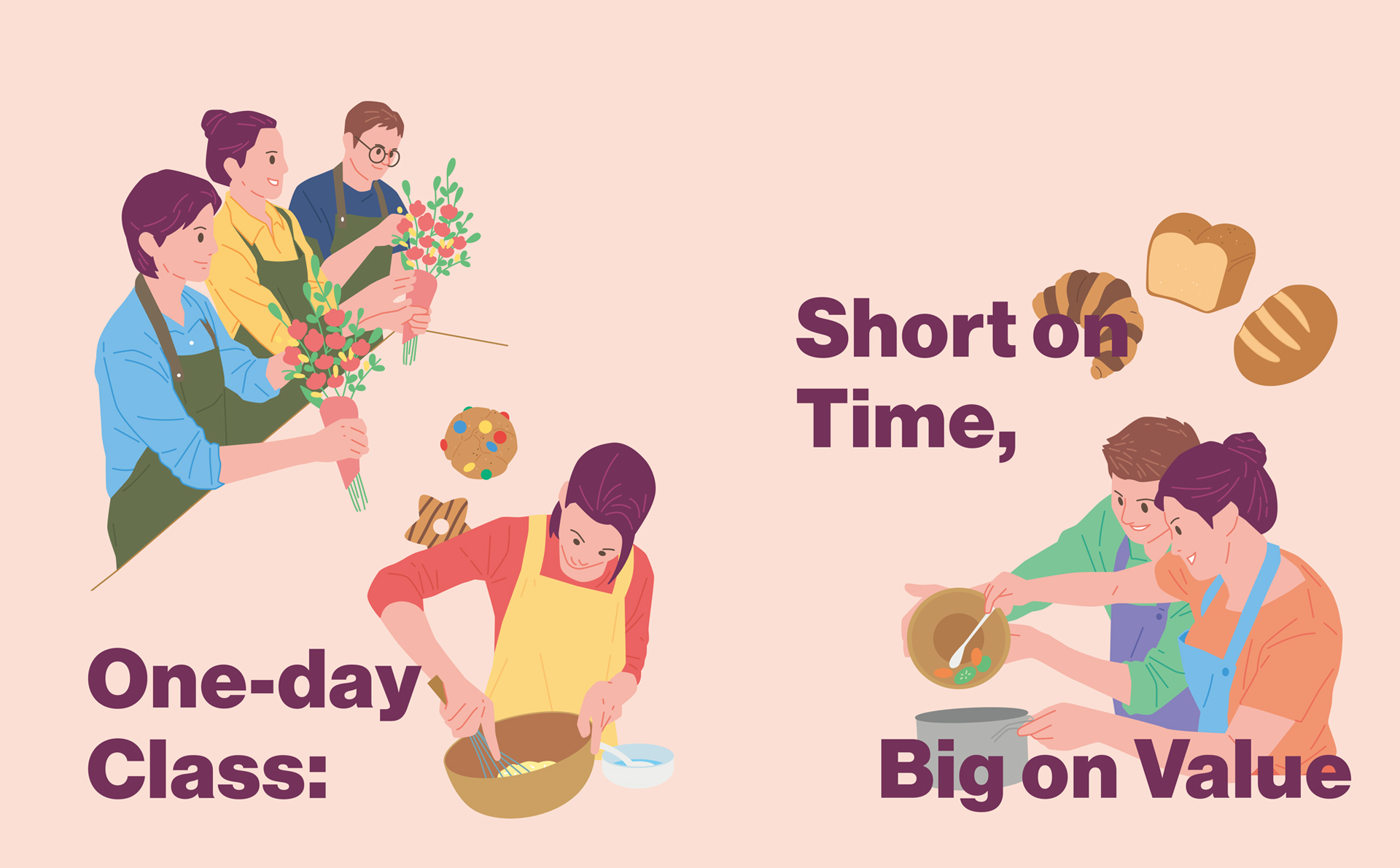
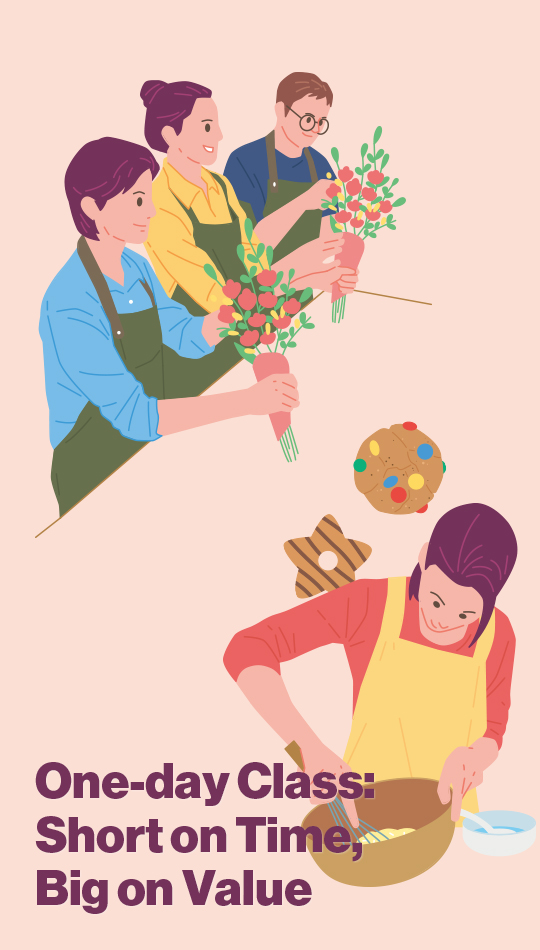
Writer.
Choi Yeonu
Illustrator.
RYUGOON
Why Koreans Love One-day Classes
One-day classes are trendy in Korea. A one-day class is a short-term program, usually half a day, that gives people the chance to experience specialized fields. Although one-day classes have existed for a long time, their number has increased rapidly in the past two years. Taking one-day classes has turned into a daily routine for the younger generation, the generation leading the consumer culture in Korea. These classes have become a hobby for them.
Why have one-day classes become part of Korean culture and daily life? In other words, why do people prefer one-day classes? Until recently, cultural activities taking up an entire day (such as one-day classes) were not referred to as “hobbies.” However, maintaining what is traditionally called a “hobby” requires time and financial investment.
There are numerous reasons why people love one-day classes. One-day classes are a good choice for people who want to pursue a hobby but don’t have the time or money to invest in one. These classes can help people develop their skills or discover their own individuality.
One-day classes make the most of a short time. The shortest classes last for two hours, while the longest lasts for six, so people can take these classes without making major schedule adjustments. These classes also give people the opportunity to experience one field of interest concisely. This helps create a sense of accomplishment while developing one’s self in a short time. Furthermore, they help people discover their unique tastes, another attractive feature of one-day classes.
Second, one-day classes are inexpensive. These classes generally cost around KRW 20,000 to 50,000 (about USD 15 to 38), which is not a lot of money to try something once. It is affordable compared to investing a month or year to learn an unfamiliar subject. There are also various types of one-day classes, so people often take several classes at the same time.
A Look at Various One-day Classes
One-day classes in Korea exist in almost every field, to the point where there is no need to explain them in detail. People can experience culinary programs such as baking. They can take one-day classes in practically every field related to arts and crafts. There are classes where people can make pottery with clay and paint, participate in wood carving and furniture making, create metal or leather accessories or household items, and learn glasswork.
However, that’s not all. There are classes on plants that include learning about flower arrangements and terrariums, and there are also classes where people can learn basic instrumental skills such as the guitar, ukulele, or even make instruments like the kalimba. Classes that are closely related to nature are especially popular such as making soap, scented candles, perfume and incense.
The formats offered for one-day classes are just as diverse as the classes themselves. There are numerous kinds of one-day classes in Korea, so it makes sense that there are various platforms that mediate them. Among them are platforms that provide online one-day classes. People receive a kit and learn directly from an instructor while only having to invest a short amount of time in the class.
Likewise, there are one-day classes that aren’t taught by teachers. These are offline, unmanned one-day classes. For example, people can take one of these unmanned one-day classes where they can make their own liquor. People sample the liquor displayed in the store, choose their desired recipe, and make their own liquor by referring to the ingredients and video lectures stored on a tablet.
As the demand for one-day classes increases, their types and forms are becoming more diverse. Korean companies are also making good use of the one-day class culture. A food company introduced a new recipe using its own instant coffee at a popular festival. A kitchenware and food container company started offering a cooking class to show people how to use their products while a stationery company started offering a calligraphy and drawing class.
In Korea, almost everyone, from individuals to companies, is stepping up to create a richer one-day class culture. Wouldn’t it be nice to add a special moment to daily life by taking a fun yet easy-going one-day class? The experience is sure to become an unforgettable memory.
